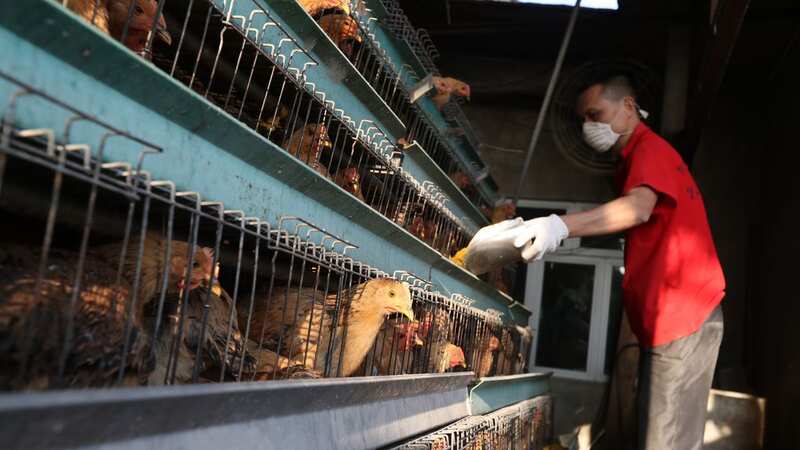Woman dies after catching rare H5N6 strain of bird flu - full list of symptoms

A woman died after contracting H5N6 – a rare form of bird flu – following a visit to a live poultry market in Sichuan, Hong Kong.
The 33-year-old first developed symptoms on October 22 and was quickly taken to hospital but she died on November 14. Her death has only just been reported by the authorities. News of the fatality comes as British health officials work on plans to stockpile vaccines in case of a bird flu pandemic in humans.
Although the virus mainly affects birds, it occasionally jumps to humans, especially those in close contact with poultry and it has a frightening death rate that can go as high as 50 per cent. This has forced health officials to take the disease more seriously and the plans for a stockpile are the first time it has been done for bird flu, which is now seen as a major threat for the next pandemic.
There is no human bird flu jab available. H5N6 was first detected in people in 2014, and since then, 88 cases of the strain have been recorded, all but two in China, in the last 10 years.
While four UK poultry workers tested positive this year, none became ill and the risk appears higher in South East Asia with two deaths in Cambodia and at least one "cluster" of cases that sparked fears that human-to-human transmission was now possible. Across the region, many people still prefer to buy live chickens at markets with many backyard farms still common.
 Teachers, civil servants and train drivers walk out in biggest strike in decade
Teachers, civil servants and train drivers walk out in biggest strike in decade
Although avian influenza viruses constantly circulate in birds, they rarely cause infections in humans. However, their evolution is worrying health experts. According to the Daily Star, a spokesperson for the World Health Organisation (WHO) said: "Sporadic human cases are not unexpected. The rise in the number of reported human cases of an H5N6 infection may reflect the continued circulation of the virus in birds, and enhanced surveillance system and diagnostic capacity as a direct outcome of the response to the Covid-19 pandemic."
Following the latest death, The Centre for Health Protection (CHP) in China is warning travellers to the Sichuan province to avoid visiting wet markets (non-supermarket-based retailers that sell perishables), live poultry markets or farms. Travellers should also avoid touching any birds or their droppings. People returning from affected areas should consult a doctor quickly if symptoms develop.
And according to the National Institute for Occupational Safety and Health in the United States, catching bird flu is rare, but can happen. They state that the signs and symptoms of bird flu virus infections in humans range from no symptoms at all or mild illness such as eye redness or mild flu-like upper respiratory symptoms to severe illness such as pneumonia, requiring hospitalisation.
According to the NHS, symptoms can be much the same as normal flu and can appear very quickly. They may include a very high temperature or feeling hot or shivery, aching muscles, a headache, a cough or shortness of breath. Victims can also get diarrhoea, feel or be sick, stomach pains, pains in the chest, bleeding from the nose and gums and conjunctivitis.
The main symptoms of bird flu are:
- a very high temperature or feeling hot or shivery
- aching muscles
- headache
- a cough or shortness of breath
Other early symptoms could be:
- diarrhoea
- sickness
- stomach pain
- chest pain
- bleeding from the nose and gums
- conjunctivitis
Read more similar news:
Comments:
comments powered by Disqus

































